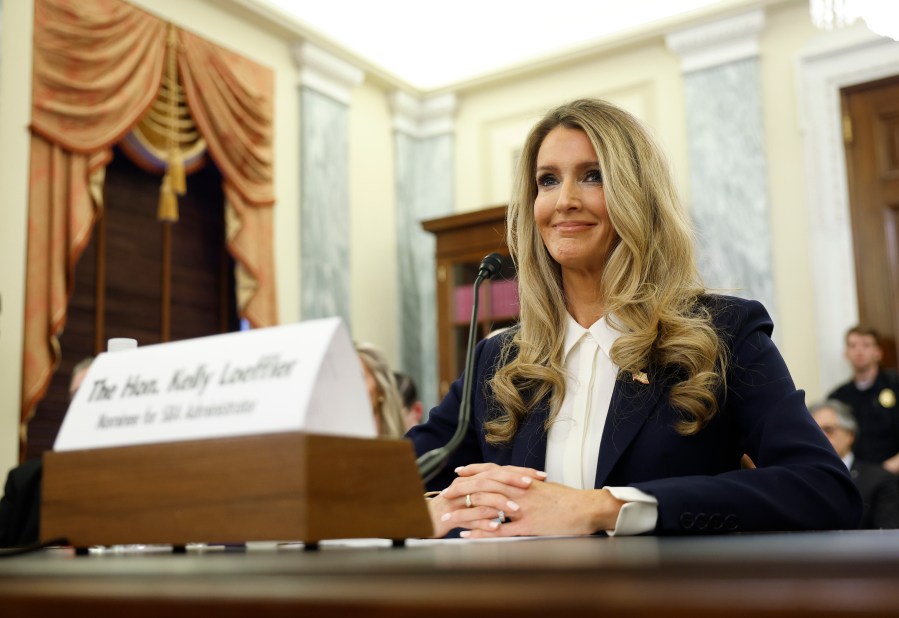Trump Puts Lives at Risk by Revoking Emergency Abortion Rules
The Trump administration rescinded Biden-era guidance that explicitly required emergency rooms to provide abortions to pregnant patients if such care would save their lives. Medical experts expect the policy shift to sow chaos in hospitals and endanger pregnant people throughout the U.S.
In the aftermath of the Supreme Court’s move to overturn Roe v. Wade, the Biden administration issued guidance related to the Emergency Medical Treatment and Active Labor Act, or EMTALA, a federal law that requires health care providers that take Medicare to provide “stabilizing” medical treatment to all patients experiencing medical emergencies.
In a 2022 letter to health care providers, Health and Human Services Secretary Xavier Beccerra wrote that if a doctor believes a pregnant patient at an emergency room “is experiencing an emergency medical condition as defined by EMTALA, and that abortion is the stabilizing treatment necessary to resolve that condition, the physician must provide that treatment.” The memo also clarified that EMTALA preempts state law in cases where abortion is illegal with exceptions narrower than those in EMTALA.
In a press release Tuesday, the Trump administration rescinded the older guidance, stating that the previous rules “do not reflect the policy of this Administration.”
The release noted that Centers for Medicare and Medicaid Services “will work to rectify any perceived legal confusion and instability created by the former administration’s actions.”
“In places where doctors and hospitals are being threatened with both criminal and civil penalties for providing abortion care, it will cause a delay.”
Abortion providers and experts in reproductive health argue that the vagueness of the new guidance will create uncertainty in emergency rooms, denying pregnant people equal access to care and putting lives at risk in states that have restricted or banned abortion.
“The Trump Administration would rather women die in emergency rooms than receive life-saving abortions,” said Nancy Northup, President and CEO at the Center for Reproductive Rights. “In pulling back guidance, this administration is feeding the fear and confusion that already exists at hospitals in every state where abortion is banned. Hospitals need more guidance right now, not less.”
The Trump administration told The Intercept that the idea that the new guidance puts lives at risk is “false.”
“CMS will continue to enforce EMTALA, which protects all individuals who present to a hospital emergency department seeking examination or treatment, including for identified emergency medical conditions that place the health of a pregnant woman or her unborn child in serious jeopardy,” Department of Health and Human Services spokesperson Andrew Nixon wrote in a statement to The Intercept.
Even before the Trump administration rescinded the Biden-era guidance, dozens of pregnant women reported being turned away for emergency medical care since the fall of Roe.
A ProPublica report found that at least five women have died as a result of abortion bans since Roe v. Wade was overturned. Most reproductive health care experts believe the number is far higher than what’s been reported.
“We already know that women have died because physicians didn’t act because of fear surrounding what they or couldn’t do under certain state bans,” said Dana Sussman, senior vice president at Pregnancy Justice, a non-profit reproductive justice organization. “We know that women have died because they have been scared to get care, because they self managed abortions. We know that more women will die, and we and there are probably women who have died, and we will never know their names.”
Sussman said that the new guidance will only make it harder for hospitals to feel comfortable providing lifesaving care to pregnant people.
“I think inevitably it will create many more challenges when it comes to what hospitals are advising their physicians, what physicians feel comfortable doing in different states and and I do think that it’s putting more lives,” she said.
Last year, the Supreme Court heard oral arguments in a case brought by the Biden Administration challenging Idaho’s abortion ban on the grounds that it violated EMTALA by prohibiting abortion care in too many circumstances. The court ultimately punted — refusing to add clarity — but allowing emergency abortions to go forward in the state.
The Trump Department of Justice declined to continue prosecuting the Idaho case, an early signal that it planned to rescind the Biden guidance.
Jamilla Perritt, an OB-GYN and abortion provider in Washington who is also president of the nonprofit Physicians for Reproductive Health, said it’s important to clarify that EMTALA still stands, even if the administration has tried to muddy the waters.
“This does not change [providers] legal obligation to provide life saving care for people when they report to emergency rooms,” Perritt said. “The other thing is that it does not change their moral and ethical obligation to do so.”
The confusion caused by this announcement, however, will carry risks, argued Perritt.
“In places where doctors and hospitals are being threatened with both criminal and civil penalties for providing abortion care,” she said. “It will cause a delay. It will give them pause.”
It’s striking, Perrit said, to see such policy come from an administration that has been masquerading as supportive of families.
“The federal government gets to decide who lives and who dies during pregnancy complications, during emergency events,” she said. “The hypocrisy is really glaring, because this is the exact same government that’s claiming to support children and families that want people to have more babies, but instead it is dismantling the system that protects the lives of pregnant people and their families.”









